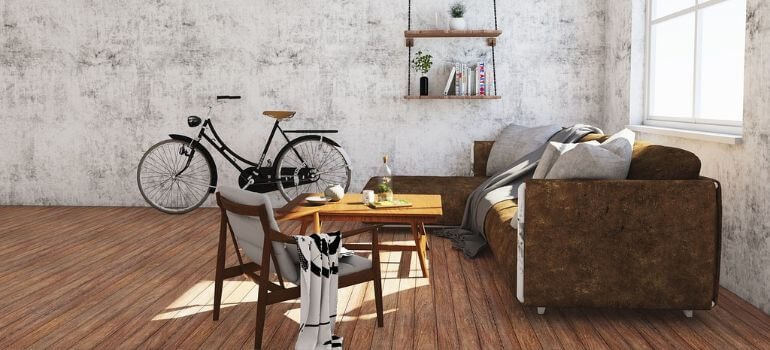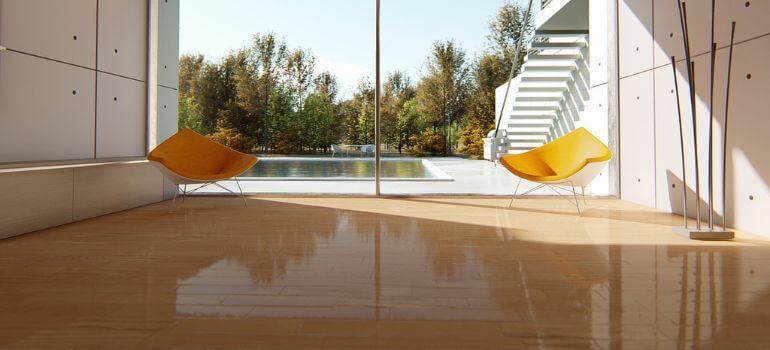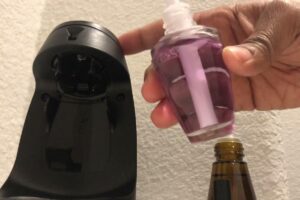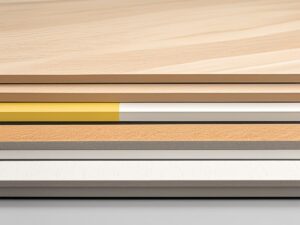Wood furniture adds warmth and charm to any space, and choosing the right stain can significantly impact the final look. Among the myriad of options, ebony and espresso stains stand out for their rich, deep tones. In this article, we’ll delve into the characteristics of each and help you decide which is the perfect fit for your project.
Understanding Ebony Stain
Ebony stain is renowned for its bold, almost black color that adds a touch of sophistication to furniture. Typically derived from the heartwood of various tree species, ebony stain is prized for its ability to create a striking contrast with lighter elements in a room.
Applications and Popular Uses
Commonly used in modern and contemporary designs, ebony stain finds its place in high-end furniture, flooring, and even musical instruments. Its luxurious appeal is often chosen for statement pieces that demand attention.
Exploring Espresso Stain
In contrast, espresso stain boasts a deep brown hue reminiscent of dark coffee. This stain is versatile and complements a wide range of design styles, making it a popular choice for both traditional and modern aesthetics.
Common Applications and Preferred Wood Types
Espresso stain’s warm, inviting tone makes it a favorite for kitchen cabinets, flooring, and classic furniture pieces. It works exceptionally well on hardwoods like oak, maple, and cherry, enhancing their natural beauty.
Key Differences Between Ebony and Espresso Stains

While both stains share a dark color palette, there are distinct differences that can influence your decision.
Color Variations and Shades
Ebony stain tends to be consistently black, providing a stark and dramatic effect. On the other hand, espresso stain offers a spectrum of brown shades, allowing for a more nuanced appearance.
Effect on Wood Grain
Ebony stain often obscures the wood grain, providing a sleek, modern finish. In contrast, espresso stain allows the wood grain to shine through, adding depth and character to the furniture.
Choosing the Right Stain for Your Project
Selecting between ebony and espresso stain depends on various factors, including the type of project and your preferred style.
Consideration of Project Type and Style
For bold, contemporary designs, ebony stain is an excellent choice. If you prefer a warmer, classic look, espresso stain might be more suitable.
Matching Stains with Existing Furniture
Consider the existing color palette of your space. Ebony stain can create a stunning contrast in a lighter room, while espresso stain seamlessly blends with earthy tones.
Application Techniques
Both stains require careful application to achieve the desired results.
Tips for Applying Ebony Stain
- Ensure a smooth, even application for a sleek finish.
- Consider using a pre-stain conditioner for more consistent color absorption.
Best Practices for Applying Espresso Stain
- Apply in thin coats to control the depth of color.
- Sand between coats for a smooth, professional finish.
Durability and Longevity
Understanding the durability of each stain is crucial for long-lasting results.
Examination of the Durability of Each Stain
Ebony stain, being darker, may show scratches less prominently. However, both stains are durable and can withstand regular use.
Factors Affecting Longevity
Proper maintenance, including periodic reapplication of stain or protective finishes, can significantly extend the life of your stained furniture.
Maintenance and Care
Taking care of your stained wood furniture ensures it retains its beauty over time.
Recommended Maintenance for Ebony-Stained Furniture
- Dust regularly to prevent a buildup of particles.
- Use a mild wood cleaner for periodic cleaning.
Care Tips for Espresso-Stained Items
- Wipe spills promptly to prevent staining.
- Use furniture polish to maintain a lustrous finish.
Popular Wood Types for Each Stain
Certain wood types complement each stain’s characteristics.
Compatibility of Ebony Stain with Different Woods
Ebony stain pairs well with woods like walnut and mahogany, enhancing their deep, luxurious tones.
Ideal Wood Choices for Espresso Stain
Espresso stain works beautifully on hardwoods like cherry, providing a warm, inviting ambiance.
Cost Considerations
Budget plays a crucial role in decision-making.
Price Comparison Between Ebony and Espresso Stains
While prices can vary, ebony stain is generally considered more expensive due to the rarity of the wood used.
Factors Influencing Cost
Wood type, brand, and the complexity of the staining process can impact the overall cost of your project.
DIY Staining Tips
For the adventurous DIY enthusiast, staining your wood furniture can be a rewarding project.
Step-by-Step Guide for DIY Staining
- Sand the wood to ensure a smooth surface.
- Apply a wood conditioner to enhance stain absorption.
- Test the stain on a small, inconspicuous area before proceeding.
- Apply stain evenly, following the wood grain.
- Allow each coat to dry thoroughly before applying the next.
Common Mistakes to Avoid
- Skipping the wood conditioning step.
- Overloading the brush with stain, leading to uneven application.
Customer Reviews and Experiences
Real-world experiences can offer valuable insights.
Compilation of Real-World Experiences with Ebony Stain
Users praise ebony stain for its bold and elegant appearance, with many considering it a timeless choice.
Insights from Users Who Chose Espresso Stain
Espresso stain users appreciate its versatility and the warmth it adds to their living spaces.
Trends in Wood Staining
Stay updated on the latest trends to make informed choices.
Emerging Trends in Ebony and Espresso Staining
- Combining ebony and espresso stains for a unique, customized look.
- Experimenting with patterns and designs in staining.
Innovative Applications in Interior Design
Designers are increasingly using ebony and espresso stains to create focal points, such as accent walls or statement furniture pieces.
Environmental Impact
Consider the eco-friendliness of your stain choice.
Discussion on the Eco-Friendliness of Each Stain
Look for stains with low VOC (volatile organic compound) content to minimize environmental impact.
Sustainable Options for Environmentally Conscious Consumers
Explore water-based stains and those derived from sustainable sources for a greener choice.
Conclusion
In the ebony vs. espresso stain dilemma, there’s no one-size-fits-all answer. Consider your style, project type, and budget to make an informed decision. Whether you lean towards the dramatic allure of ebony or the versatile warmth of espresso, both stains have their unique charm.
FAQs
Yes, blending stains can create a unique and personalized finish.
Mahogany is a versatile wood that complements both stains beautifully.
While they can be used, it’s essential to use a protective finish for outdoor applications.
DIY staining is possible with proper preparation and attention to detail, but professionals can ensure a flawless finish.
It’s generally recommended to strip the existing finish before applying a new stain for optimal results.



